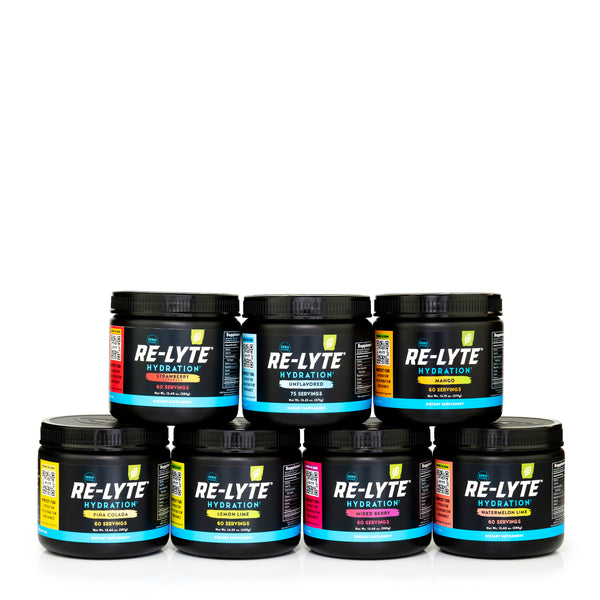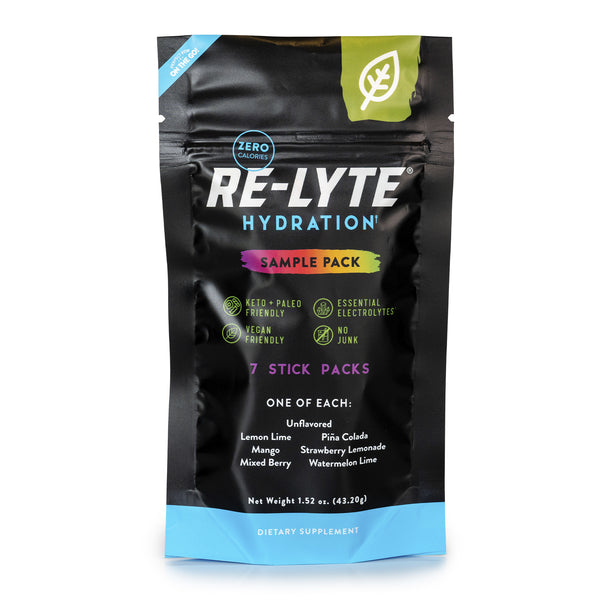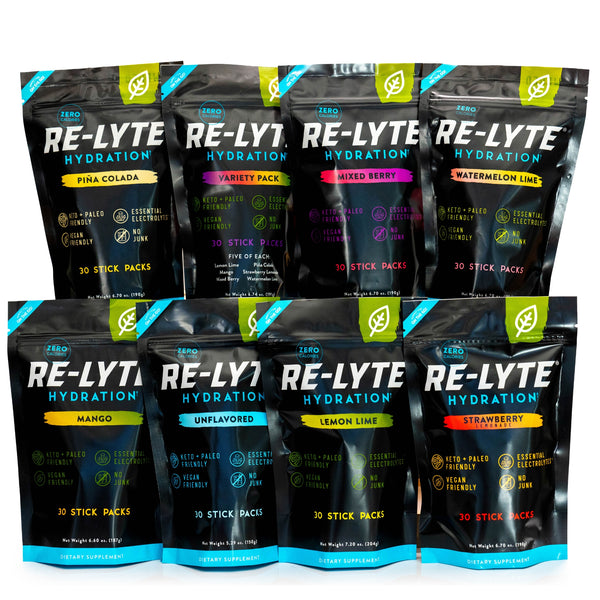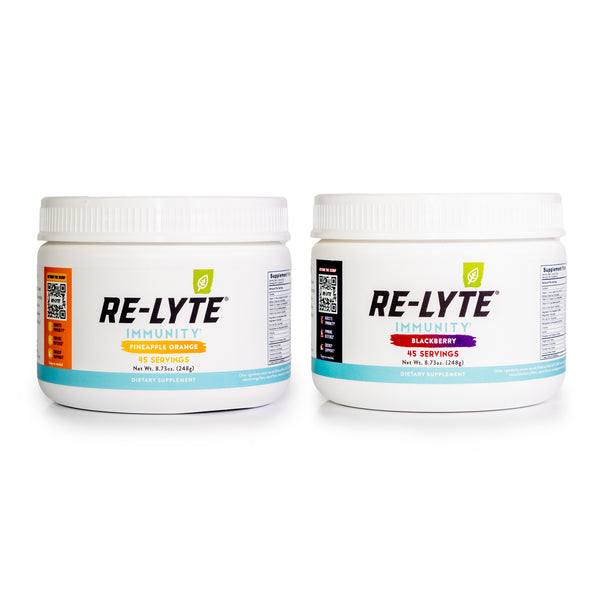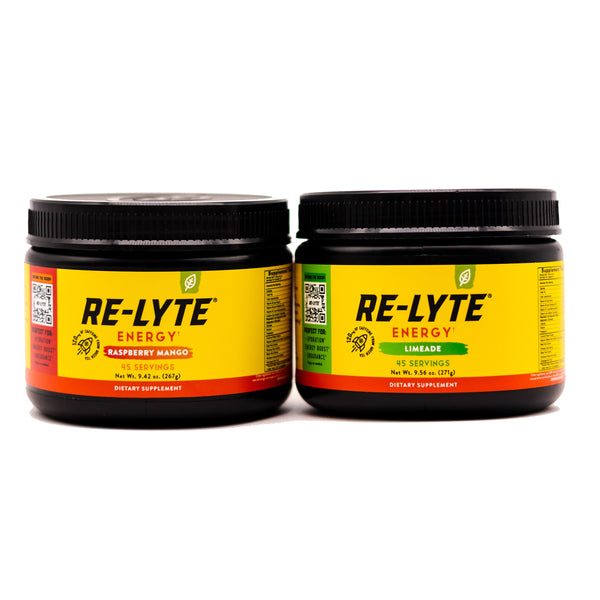Beyond the Boost: A 7 Pillar Plan for Ultimate Immune Health

Article at a Glance:
- The idea that one particular health remedy can “boost” your whole immune system may be too simplistic.
- Your immune system is a collection of cells, glands, and organs that work together to fend off a wide range of pathogens and can’t be “boosted” at the drop of a hat.
- Rather than looking for a quick boost, you can develop your very own long-term immune health plan based on seven pillars of superior immune support: diet, hydration, exercise, sleep, stress, fasting, and herbs.
By now, you’ve probably read at least a million articles (a conservative estimate) on quick ways to boost your immune system. Since 2020, they’ve been popping up faster than noisy notifications on your phone during a work Zoom when you forget to switch the dang thing to silent.
Now, it’s awesome that these articles offer easy ways to give your immune system a little extra support. Who doesn’t need that? But if we've learned anything in recent years, it’s that we need to go beyond the boost. We need to create a long-term, sustainable strategy for keeping our immune system strong and healthy rather than pumping the echinacea tea from time to time.
That’s partly because you never know when a strange, new threat to your immune system is going to sweep the globe, but it’s also because the whole notion of quickly boosting your immune system doesn’t totally jive with how your immune system actually works.
Your immune system isn’t a singular thing that can be boosted at the drop of a mid-2000s fedora hat (the only type of hat we think deserves to be dropped). It’s a collection of cells, glands, and organs that work together to fend off a wide range of pathogens so you can stay healthy.
These cells, glands, and organs are impacted by the decisions you make in your everyday life. And they can fall into a healthy or an unhealthy pattern that can’t be immediately overhauled with a quick boost. That’s why the idea that one particular herb, food, home remedy, habit, fill-in-the-blank can boost your whole immune system may be too simplistic.
If you’re someone who already lives an incredibly healthy, balanced lifestyle, you may be thinking: My immune system is perfect-o. I don’t need to change a thing. Good for you! But the truth is, most of us have a lot of room for improvement. How can you tell if your immune system needs some extra love? Here are some signs that you don’t exactly have the Arnold Schwarzenegger of immune systems:
- You’re always catching colds or other bugs.
- You get other infections frequently. Ear infections, sinus infections, bladder infections, you name it.
- Cuts or wounds on your skin seem to heal slowly. A sure sign your immune system’s a little sluggish.
- Your energy level leaves looooots to be desired. When you’re tired all the time for no good reason, it could mean your body is in energy conservation mode because putting all its energy toward immune tasks.
- Your stomach is super sensitive. About 70 percent of your immune system is in your gut, so frequent diarrhea, constipation, gas, etc. is a sign your immune system is suffering.
- You’re stressed out all the time. Stress suppresses your immune function. Period.
Any of these signs hit home? That means it’s time to get proactive about your immune health. Here’s how you can develop your very own long-term immune health plan that goes beyond the boost.

The 7 Pillars of An Awesome Immune Health Plan
1 - Diet
If you’re serious about supporting your immune health in a way that’ll keep you feeling strong and healthy for decades, start with your diet. It’s the foundation of any worthwhile immune health plan. And if you have a shaky foundation, the whole thing falls apart...
A 2018 study from researchers at the University of Bonn found that the body responds to junk food like it’s a bacterial infection. That means it sends out immune cells unnecessarily, which can trigger an overactive immune system and chronic inflammation. An immune system that’s wasting its precious energy fighting off junk food, isn’t going to be as effective when it comes time to fight off an actual bacterial or viral threat. So clearly junk food is a bad idea. But what should you eat to support a healthy immune system?
Research shows that a variety of diets have immune benefits, including the Mediterranean diet, plant-based diets, keto diets, paleo diets, and plenty of others. But do you know what all these diets have in common? They limit processed foods and include tons of fresh, whole foods...especially vegetables. In fact, one 2011 study found that loading up on green veggies in your diet can help the immune cells in your gut and skin work better.
Pick whichever diet or eating pattern you can stick to for the long haul. If you stick to a well-rounded diet that includes a variety of whole foods, you should be good. Of course, it doesn’t hurt to make sure you’re getting plenty of these nutrients that are extra important to a healthy immune system:
- Vitamin C
- Vitamin D
- Zinc
- Selenium
- Iron
- Protein
- Probiotics
2 - Hydration
Did you know that your blood plasma is 90 percent water? And your blood delivers fluid and nutrients to your glands, tissues, and organs, including the ones that play a critical role in your immune function, like your thymus, lymph nodes, spleen, and others. The fluid in your lymphatic system (known as lymph) is also 90 percent water, and it helps flush pathogens, toxins, and waste from the body.
So how much hydration does your body need to keep your immune system supercharged? The honest answer is: It depends. Everyone’s hydration needs are different. If you want to take a deep dive into how to stay healthfully hydrated, check out this article. But here’s the tdlr (too dang lazy to read) version….
As a general rule, the U.S. National Academies of Sciences, Engineering, and Medicine recommends healthy adults get between 11.5 and 15.5 cups of fluids per day. That includes the hydration you get from food, which for most people, accounts for about 20 percent of their daily hydration. Of course, exactly how much hydration you need will vary depending on your size, activity level, the climate you’re living in, your health status, and a bunch of other factors.
3 - Exercise
Lace-up those Reeboks, because your immune system loves a good power walk. In fact, a 2005 study found that a brisk 30-minute walk boosts natural killer cells, white blood cells, and other immune cells in your body. Exercise has also been shown to help your lungs and airways filter out bacteria, so you’re less likely to end up with respiratory tract infections.

But be warned….exercise can be a double-edged sword when it comes to immune health. Exercising too much or too intensely can take a toll on your immune system. So watch out for signs that you’re overdoing it, like:
- Feeling unusually tired
- Having trouble sleeping
- Getting injuries from overuse
- Getting sick more often than normal
- Being unable to perform at the same level you normally do
- Feeling unusually anxious
- Losing too much weight
For the average person, 30 to 60 minutes of exercise per day should be enough to provide immune support without taking it too far. If you’re doing 75 minutes a day, you’re likely going overboard (and not in a fun Kurt Russell-Goldie Hawn type of way). One other word of warning…..never exercise after you’ve already come down with something. Your body needs as much rest as possible when it’s fending off an infection, so leave the exercise until after you recover.
4 - Sleep
Oh sweet, sweet sleep. There’s nothing quite like a long, restful night in a cozy bed. It’s one of the things I love most in life. And your immune system loves sleep too. Research shows that sleep improves the function of T cells, which play a critical role in attacking cells that are infected with viruses. Cytokines, another type of immune cell, are also released during sleep. And not getting enough sleep can lead to low levels of these immune cells that have a pretty important job. They manage the release of other immune cells.
When it comes to creating a healthy sleep plan there’s only one rule…..get enough of it! Get 7-9 hours every night, no negotiations. As simple as that sounds, I know it’s not always easy. A million different things could compromise a good night’s sleep: your kids waking you up, your pets waking you up, a demanding work schedule, or just good old-fashioned insomnia of unknown origin.
If you’re struggling to get a good night’s sleep regularly, it’s time to put on your thinking cap (mine’s purple with a big pom on top) and find a solution. First, determine what’s causing your sleep trouble (sometimes, it’s obvious. Other times, it’ll take some serious contemplation. Hence the thinking cap). Then make a list of potential solutions. Once you have a decent list going, pick a few of your favorite solutions and transform them into a pledge you make to yourself (e.g., I will stop falling asleep in front of the TV or I’ll make an appointment to see a therapist who specializes in insomnia).
5 - Stress
Research shows exactly how your immune system responds to stress….and it isn’t pretty. When you’re stressed, your body releases hormones like cortisol, which reduce the function of white blood cells (cells that protect your body from invaders that can make you sick). In other words? Stress suppresses your immune system.
So if you’re teeth-grindingly on edge all the time, hatch a plan to break free from the stress. Here are a few questions you can ask yourself to start thinking about solutions to your chronic stress.
- What relationships or situations in your life make you feel the most stressed?
- Is it possible to eliminate these relationships or situations?
- If not, what changes could you make to them to reduce the amount of stress they cause you?
I also recommend looking into cognitive behavioral therapy (CBT) to help change some of the mental patterns that are contributing to your stress. CBT helps you examine your perceptions and beliefs and change them if they’re causing you unnecessary stress. There are even some free CBT courses you can take online. Although, it’s always more effective to see a trained therapist who can guide you. Check out this database of CBT specialists if you’re ready to get serious.
6 - Fasting
Sure, what you eat can help keep your immune system strong. But what you choose not to eat could do the same. A 2014 study found that fasting for three days essentially reset the immune system by initiating stem cell regeneration of old, damaged immune cells. Now, I know not everyone’s going to be game for a three-day fast. But a form of intermittent fasting called time-restricted eating (where you eat all of your food during a 6-hour to 8-hour window and fast the rest of the day) is also shown to have immune health benefits.
How do you determine whether fasting should be part of your immune health plan? Well, first check out this article about some of the upsides and downsides of fasting to see whether it’s right for you. Then join our Redmond Life Fasting Facebook group for more insight, support, and tips from people who know how to use fasting to make positive changes in their health and life.
7 - Herbs
The right herbs, when used alongside the other habits on this list, can make a powerful contribution to your overall immune health. Our favorites? Ginger root, turmeric root, and elderberry fruit. Here’s why:
- Ginger root contains powerful compounds that provide antioxidant, inflammation, and microbial support to contribute to immune balance.
- Turmeric root also provides powerful inflammation support, and supports a healthy immune response.
- Elderberry fruit provides antioxidant support and has been shown to support wellness during those periods when seasonal bugs are rampant.


We’ve included all three of these herbs in our new immune-supporting mix Re-Lyte Immunity. Re-Lyte Immunity also contains our signature Re-Lyte Hydration electrolyte blend (including Real Salt), so it has your hydration needs covered too. Plus, it delivers vitamins C, D, B12, and zinc for an extra dose of daily wellness. Take a peek and see if it looks like a good fit for you.
Sources:
- 6 Signs You Have a Weakened Immune System— Penn Medicine.
- How to boost your immune system— Harvard Health Publishing.
- Nutrition and Immunity— Harvard School of Public Health.
- Fast food makes the immune system more aggressive in the long term— Science Daily.
- Eating green veggies improves immune defenses— Science Daily.
- Why Is Hydration Important For Your Immune System?— Nutri Advanced.
- Water is essential to good health. Are you getting enough? These guidelines can help you find out— Mayo Clinic.
- Immune response to a 30-minute walk— Europe PMC.
- Are you getting too much exercise?— MedlinePlus.
- Exercise and immunity— MedlinePlus.
- How Sleep Strengthens Your Immune System— Healthline.
- Fasting triggers stem cell regeneration of damaged, old immune system— University of Southern California.
- Can Intermittent Fasting Reset Your Immune System?— Forbes.
- What Are Ginger Shots? Everything You Need to Know— Healthline.
- "Spicing up" of the immune system by curcumin— Journal of Clinical Immunology.
- Elderberry: Benefits and Dangers— Healthline
Comments (1)

Would I take hydration re-Lyte , and the immune re-Lyte together? I already do the hydration every morning, but kind of wondered if immunity is all in one, and I don’t need the hydrate as a daily supple for my water in the morning. I will Be traveling to for two weeks, so I was just kind of wondering if I need both or immunity is all inclusive of hydrate to.
———
Redmond Life replied:
Hi Kathy, thanks for your question. Re-Lyte Immunity has electrolytes in addition to immune-supporting herbs and vitamins. However, there are fewer electrolytes in Immunity. For example, Immunity has 770 mg of chloride compared to 1280 mg in Hydration. You can use both, just keep in mind how many electrolytes you need in a day, and adjust your intake for what’s best for your body.




